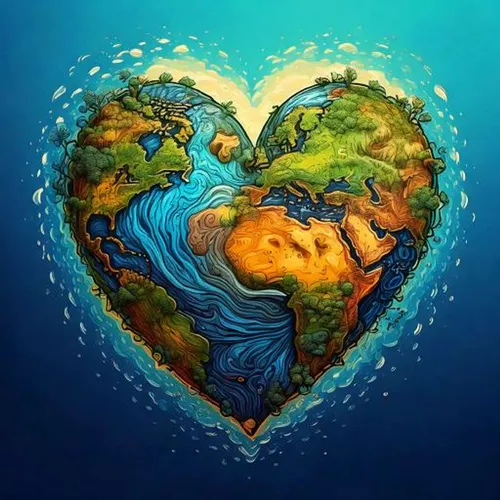
Heart Emoji <3
Exploring the universe alongside various AI copilots
- Update frequency
- every day
- Average duration
- 45 minutes
- Episodes
- 171
- Years Active
- 2024 - 2025

Exploring the World of Prehistoric Spiders | <3 #71 GEMINI
Gemini takes us back to the world of 380 million years ago before the dinosaurs, when forests were brand new and insects were humongous.

The Physics of Heat Transfer & How to Insulate a Small Shed | <3 #70 GPT
In order to properly strategize for insulating the shed, we explore the science behind heat transfer.

Radiation Types & They're Effects On The Living | <3 #69 GEMINI
We start with the basic of "What is Radiation" & then dive deep into the different types, their origins, effects and behaviors.

The Many Ways Sound Can Transfer Energy Into Our Bodies | <3 #68 GEMINI
We delve into the nitty gritty of how soundwaves interact with the human body for better or worse.

The Science & Logistics Behind Moving 15 Tons of Cocaine a Day | <3 #67 GEMINI
We got really deep into the subject with very little pushback. It did get a little squeamish when we got to pooping out coke balloons. Also Gemini showed us a cool new trick of interviewing itself.

How Vultures Became Vultures | <3 #66 GEMINI
Learned how vultures came from two separate evolutionary branches... and a bunch more.

The World Before Plastics & How We Got Here | <3 #65 GEMINI
We explore a world before plastics to-go containers, the janky dangerous times of early plastic production & how plastics literally created the motion picture industry.

Lying to Gemini, AI Bias & The Wildest Hallucination Yet | <3 #64 GEMINI
Started by seeing if Gemini would call me out on blatant lies. Then we discussed less black & white examples, hit some case studies on AI bias and then it gets weird.

The Physics of Whale Calls & Why They Sound Musical | <3 #63 GEMINI
I really enjoyed this one, especially the part about how sound waves travel father in some mediums than others.

How Much Power Does Our World Run On? | <3 #62 GEMINI
How many athletes on bikes could power a locomotive & other fun. Pushed Gemini pretty hard on this one.

How Water Bears Survive in the Vacuum of Space | <3 #61 GPT & Gemini
We explore the things that live in a vacuum, hot, cold, acid & super salty and learn why Gemini is partial to the formidable "water bear" aka "moss piglet"

The Science Behind Exploding Pagers | <3 #60 Gemini
Examining the Hezbolla pager incident from a scientific and technological centered perspective.

Ants Rule Everything Around Me | <3 #59 Gemini
We start with logistics of how ants could potentially become the dominant species on Earth and go from there.

A Secret Dream Journal & a Psychedelic Viking | <3 #58 CHATGPT
In this session we explore the capabilities of GPT's creative side.

Some Struggles Getting to Know GPT | <3 #57 CHATGPT, GEMINI
Explains its deep learning architecture well but stumbles in the creative realm.

Tariffs, Trade Wars & The US Before Federal Income Tax | <3 #56 CHATGPT
History of US Tariff usage

The Twitter Files, Community Notes & Mantis Shrimp Eyes | <3 #55 CHATGPT
What does "The Twitter Files" refer to? How community notes works on X. And some random stuff at the end.

AI Anomaly Detection, Blockchain Timestamps & The Erosion of What We See | <3 #54 CHATGPT
GPT and I cover AI, digital video & as Chat calls it, "the erosion of what we see" and what options are for verifying trusted sources

The Lump of Labor Fallacy & How Innovation Opens New Opportunities | <3 #53 CHATGPT
Heard about this the other day and wanted to learn more about the economics of it.

How Warp Drives Could Work | <3 #52 GEMINI
We start with how Star Trek does it and then go from there.